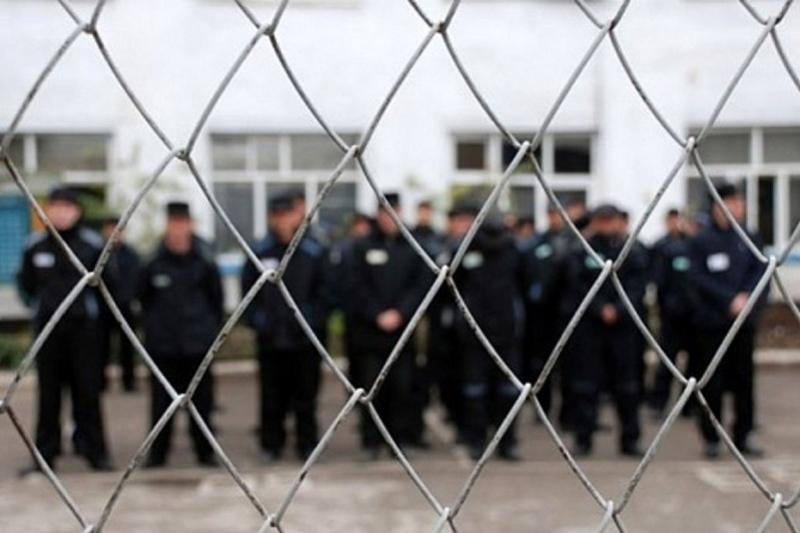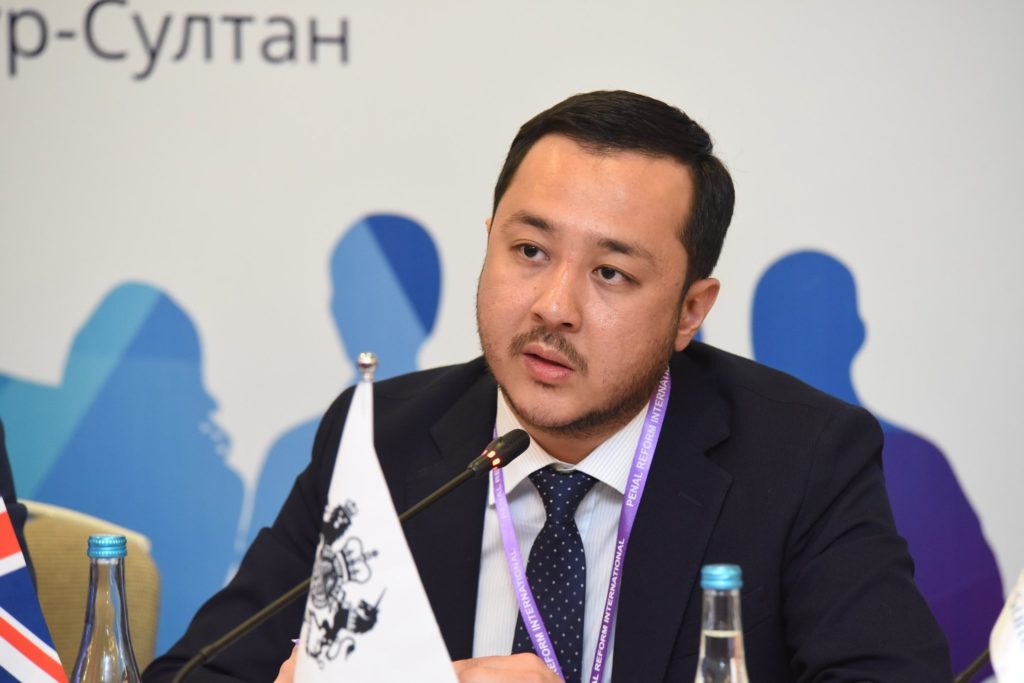NUR-SULTAN – Penal Reform International (PRI) is seeking to assist Kazakhstan in reforming its penal system, step up efforts to prevent torture and update detention facilities in line with international standards, said PRI Central Asia Director Azamat Shambilov.
The organisation has been working for 30 years across 90 countries worldwide.
“There was one person, Ahmed Othmani, who was a former prisoner. He had been in prison for 12 years. He was sentenced due to his political views. Amnesty International gave him the status of a prisoner of conscience. When he was released, he started to work at Amnesty International fighting for human rights. There he met a woman, Vivien Stern, who has been working at AmnestyInternational for many years. They were visiting prisons to protect the rights of prisoners,” Shambilov told The Astana Times.
A group of criminal justice and human rights activists founded the organisation in 1989 to ensure fair and effective criminal justice system, build a dialogue with the state and address the rights of suspects, offenders and prisoners.
PRI has worked in Kazakhstan since 1998, after the country invited the organisation to assist in reforming its criminal justice and penal systems.
“At the time, when the capital was moving [from Almaty to the then Akmola], international organisations were opening their offices in Kazakhstan and PRI for the first time came to Kazakhstan and started working for a pilot project in Pavlodar prison. They were visiting prisons and carrying out different projects, including in healthcare. If you remember, in the 1990s and the beginning of the 2000s, many people were dying from tuberculosis in society and, of course, in prisons. There was a big stigma that prisoners were likely to have tuberculosis,” said Shambilov.
The efforts produced positive results.
“Today, the death rate from tuberculosis has significantly declined and this is a big achievement both for our organisation and the state. There would have been no result if not for our cooperation,” he added.
The achievements in Kazakhstan are significant. PRI works across five areas – promoting international standards in national legislations, introducing alternatives to imprisonment, abolishing the death penalty or maintaining a moratorium on it, decreasing the prison population and training personnel.
“We have done a lot in the first area. The convention (UN Convention against Torture) was ratified, but significant efforts have also been done to ratify the faculty protocol. Many countries ratify the convention, but few ratify the protocol, because it obliges a country to set up a mechanism to monitor prisons, allowing civil society to monitor them. Kazakhstan agreed to that,” he said.
Public monitoring commissions have been working in Kazakhstan since 2005.
“Kazakhstan was the first country in the post-Soviet space that allowed human rights workers in prisons to examine them. In those years, of course, prisons were in terrible condition. It was hardly possible to ensure basic standards for prisoners. They visit prisons, inspect them, evaluate the situation with the human rights of prisoners, evaluate their conditions there, talk to them and receive complaints. They compile a comprehensive report,” he said.
Another achievement was creating a national preventive mechanism in 2014 to prevent torture and other cruel, inhuman or degrading treatment or punishment.
National preventative mechanism (NPM) members include independent experts and civil society representatives who have the right to meet detainees in private and receive complaints. In 2018, they made 461 preventive visits, including to 118 temporary detention centres, 33 pre-trial detention centres, 90 correctional institutions, 26 remand houses, 24 special reception centres, 15 adaptation centres for minors and eight special educational institutions.
In December, the coordination council elected 109 NPM members for 2019-2020.
PRI has also been working to humanise criminal legislation. The work had two stages, said Shambilov.
“The first took place approximately from 1996 until the 2000s, when the new codes were adopted. This is, of course, with the involvement of the state. Following the collapse of the Soviet Union, countries started writing their own codes; of course, they were very similar to the Soviet ones, because these countries had no other example to follow. They did not trust the West then, because the Soviet Union leaves its trace and humanisation of criminal legislation has been discussed since around 2005,” he said.
The term of torture was legally defined for the first time.
“Prevention of torture has remained an acute issue in Kazakhstan for many years. The issue is now more spread due to social networks that are more accessible today. There is a range of amendments in this area. Between 2016-2018, 13 law enforcement and penal system workers have been convicted of torture. The punishment is severe, because punishment for torture is equal to that for murder,” he added.
Among the changes is a moratorium on the death penalty put in force in 2003.
“Our organisation has done a big job, surveying all prisoners on life sentences, surveying all other prisoners on what they would have done if they were sentenced to the death penalty, system workers and citizens,” he said.
Shambilov also emphasised probation service, another “progressive mechanism” that was introduced in Kazakhstan in 2012.
“Kazakhstan steadily started to understand that people can be sent to community service in some cases. I remember our first training on probation service. I had no idea where I would take experts. I visited Karaganda and East Kazakhstan Regions and penal system workers themselves had no clue who we were, what we were doing,” he said.
More than 60,000 people are currently on probation service and the prison population has declined from 100,000 in 1990s to 31,000.
Helping former prisoners integrate back into society is among the key goals countries need to achieve.
“I have been personally dealing with this issue since 2012 and raising the issue of re-socialisation of former prisoners. These people need to be met. I was visiting all akimats, but they were kicking me off, saying they are not dealing with prisoners or human rights and sending me to other agencies. I was showing them the document that clearly defined their responsibility. They have not done anything for two years,” he said.
Kazakhstan recently hosted its first penal reform forum gathering government, penal system and civil society representatives to facilitate discussion on penal reforms in the country and the region, signalling a huge step forward in fostering efficient dialogue between civil society and the government.
“We set up a working group on penal system reform. We will examine the current situation. We may need to conduct an audit of prisons across all regions to make a comprehensive mapping where we will identify all problems and to what extent they pertain to other regions. We will conduct a situation analysis on separate areas,” said Shambilov.



